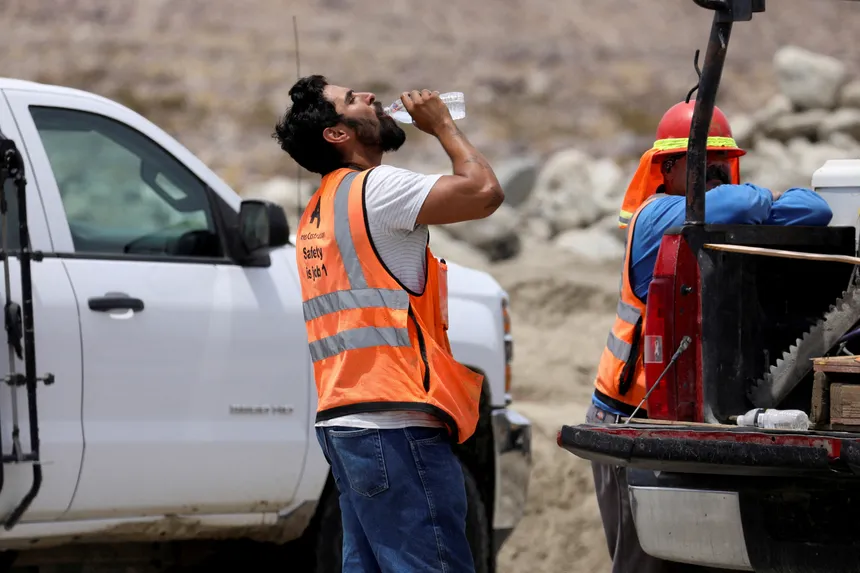A dangerous heatwave is gripping the United States’ southwest, with millions of people under a heat advisory for the second consecutive week. Temperatures are expected to soar to record-breaking levels, with Sacramento, California, forecasted to reach 102F on Tuesday and Phoenix, Arizona, hitting 111F on Wednesday. The sweltering heat is expected to make its way to the east coast by Friday.
Health experts and climate scientists are warning about the devastating effects of extreme heat on the human body. “Heat stress occurs when the body’s ability to cool itself is exceeded,” explains Uwe Reischl, a professor in the school of public and population health at Boise State University. This can happen when a person’s body produces sweat, but the evaporation is limited due to high humidity, or when they wear clothing that prevents sweat from being released from their skin.
Dehydration also plays a significant role in heat stress, as a person’s body may not have enough water to produce sweat. When this happens, the body’s ability to regulate its temperature is severely impaired. Reischl adds that warm air can hold more moisture than cold air, which means that heat domes, like the one currently affecting the southwest, are more likely to exacerbate heat stress.
Urban environments, with their abundance of buildings, pavement, and parking lots, are particularly prone to heat stress. These surfaces absorb and release heat throughout the day, making it difficult for the body to cool down. Kristie Ebi, a professor of environmental and occupational health at the University of Washington, notes that heat stress is a spectrum, with symptoms ranging from mild to severe. In extreme cases, heat stress can lead to heatstroke, which can be fatal.
Certain populations are more vulnerable to heat stress, including children, the elderly, and pregnant individuals. Athletes and outdoor workers are also at a higher risk, as they are more likely to generate heat that their bodies cannot dissipate. Farm workers, who often wear protective clothing that hinders sweat evaporation, are particularly susceptible to heat stress.

To recover from heat stress, individuals need to allow their bodies to cool down, which is typically done at night. However, with overnight temperatures increasing by 3F on average since 1970, people are getting less reprieve from the heat at night. Drinking more water than usual and taking regular breaks are essential for rehydration and recovery. Avoiding strenuous outdoor activities, staying hydrated, and seeking air-conditioned spaces are also crucial for mitigating heat stress.
In the absence of air conditioning, there are several ways to stay cool. Placing feet in cold water, wearing cool towels around the neck, and using electric fans are all effective methods. Pulling down shades during the day and opening windows at night can also help keep a person cool.
As the heatwave continues to spread across the country, it is essential that people take necessary precautions to stay safe. By understanding the risks associated with heat stress and taking steps to mitigate its effects, individuals can protect themselves and their loved ones from the devastating consequences of extreme heat.

